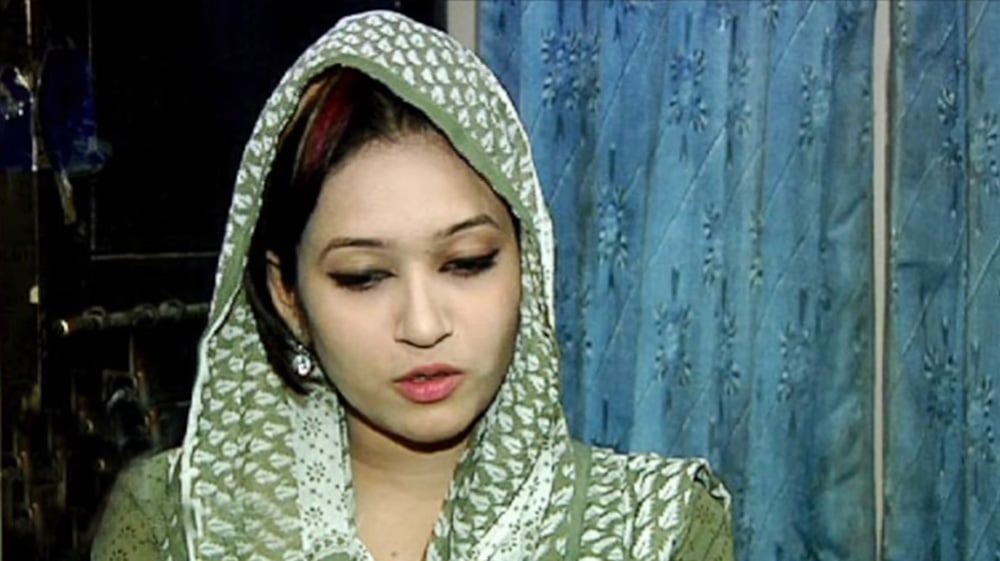

DHAKA: In Bangladesh, where morality tales top bestseller lists, the real-life transformation of Naznin Akter Happy from an actress embroiled in scandal to a fully-veiled ultra-conservative Islamic preacher has proved sensational.

An expose shedding new light on the 22-year-old´s moment of revelation is flying off shelves in the conservative country, where a stricter interpretation of Islamic morals has gradually taken root in recent years.
"From Happy to Amatullah" -- or female servant of Allah -- is a rare, extensive interview with the reclusive young woman who today only surfaces to preach a puritanical vision of Islam on social media.
Readers hungry for celebrity intrigue and divine intervention have rushed bookstores to snap up a copy, with thousands sold since its release in June and publishers scrambling to reprint.
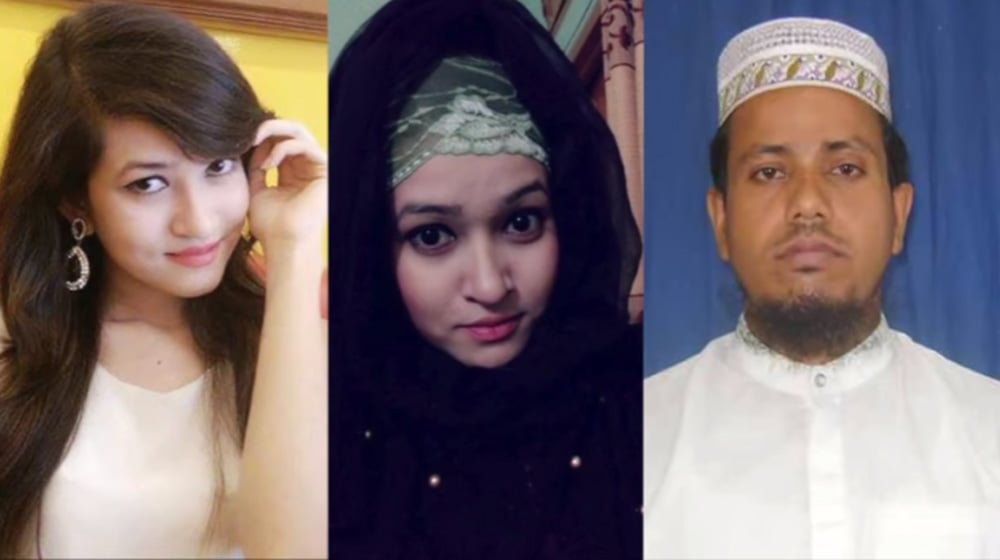
"We´ve been swamped by orders for the book from all parts of the country," said Mohammad Obaidullah, owner of Maktabatul Azhar, a publishing house specialising in Islamic books.
"Everyone wants to know what prompted her to quit the celebrity lifestyle for the ordinary life of a devout Muslim."
Happy was a star in Dhallywood, the Bengali-language film industry, shooting to fame in her 2013 debut "Kichu Asha Kichu Valobasha" (Some Hopes, Some Loves).
But it was the controversy surrounding shock rape allegations she levelled against star fast bowler Rubel Hossain in late 2014 that made Happy a household name across cricket-mad Bangladesh.
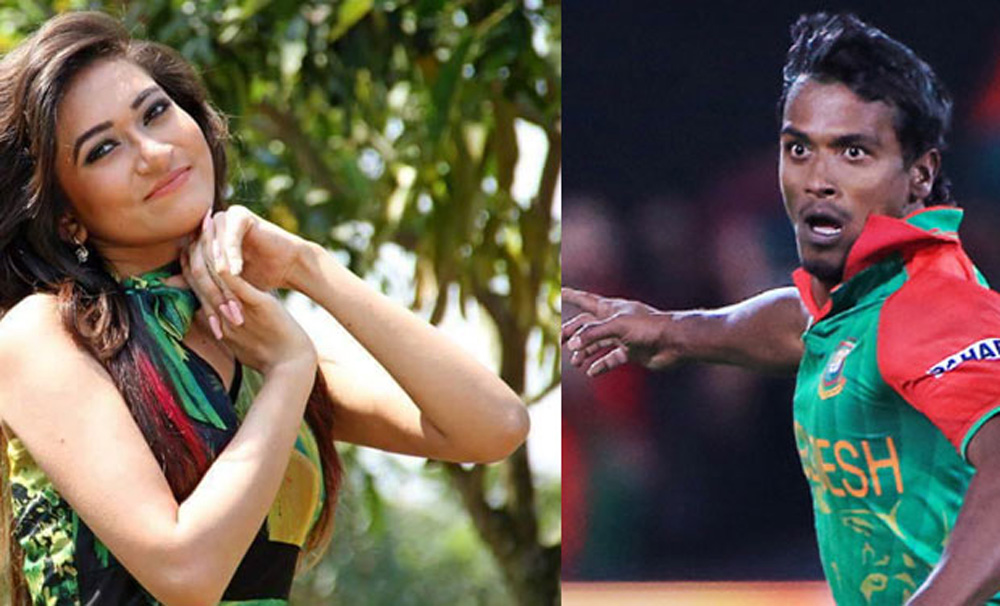
Happy alleged she was involved in an "intimate affair" with the then 25-year-old cricketer, whom she accused of walking away from a promise of marriage.
The revelations proved scandalous in the Muslim-majority country, where sexual relationships outside marriage are frowned upon and allegations of coercion can be seen to restore honour.
Rubel claimed he was being blackmailed but was remanded in custody. He was released a few days later to play in the World Cup, and a court later found no evidence to convict him.
Every twist received saturation coverage, spurring gossip long after Happy dropped the charges, saying she had forgiven Rubel.
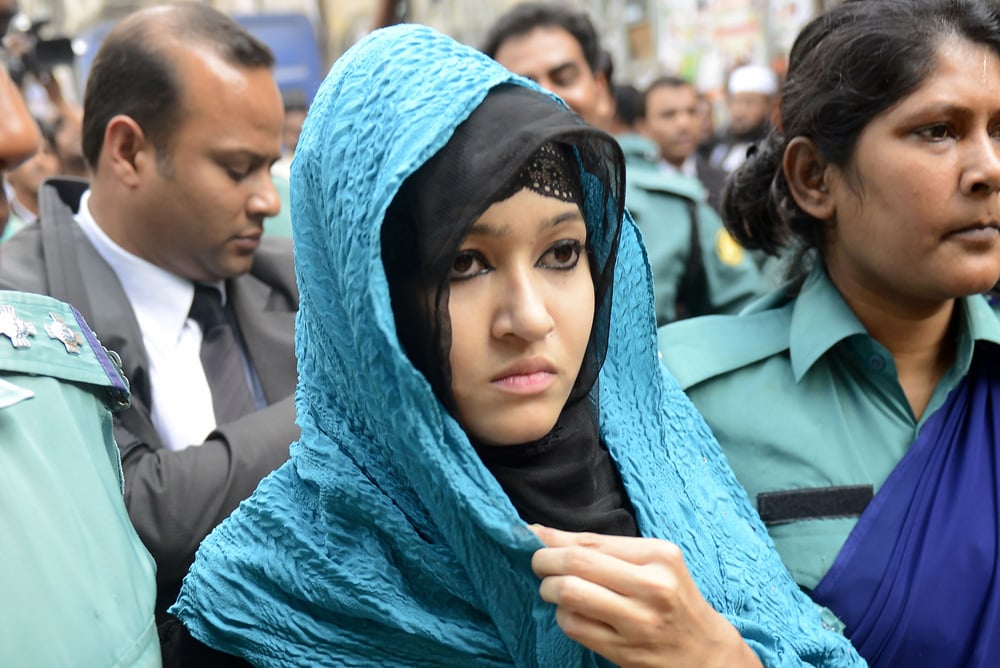
- Erasing her past -
After so long in the public eye her sudden appearance in the black burka worn by only the most devout Bangladeshis fanned even greater curiosity about the young woman´s life.
Happy was weathering the Rubel scandal and part-way through shooting a new movie when the actress claims she had an "epiphany" that altered her life.
Overnight, she committed to joining Tablighi Jamaat -- a Sunni Islam evangelical movement that boasts millions of adherents in Bangladesh -- and began severing all ties to her past life.
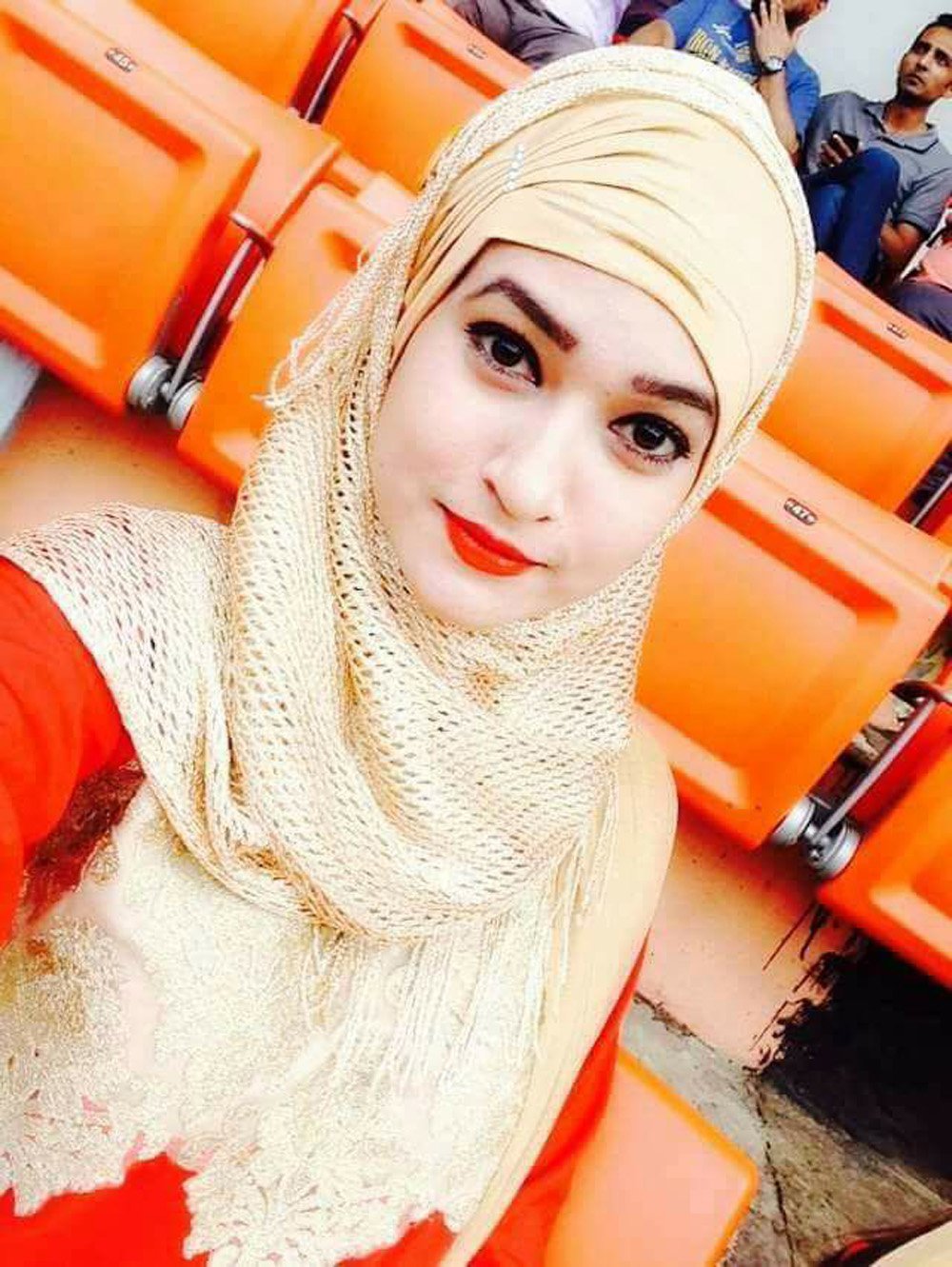
"That night she started deleting thousands of photos of herself she posted on Facebook. She then cut ties with the movie world," said Abdullah Al Faruque, who co-authored the book with his wife Sadeka Sultana Saqi, who was granted access to Happy for the interview.
"She renamed herself Amatullah. She started to wear a full-veiled burka and now even covers her hands and toes with socks."
Happy turned her back on her fans and a stunned film industry to embrace the austerity of a missionary´s life, retreating to a madrassa to study the Koran where nobody would see "even the nails of my fingers".
Determined to erase her past entirely and cement her pious makeover, Happy even fought unsuccessfully to stop the release of her final film "Real Man", arguing it starred a completely different person.
"I felt like a newborn baby," she wrote in the book, about the moment she donned the burka and abandoned her former name and identity.
"Now, I have no ties with my previous life. That´s the tale of a different person."
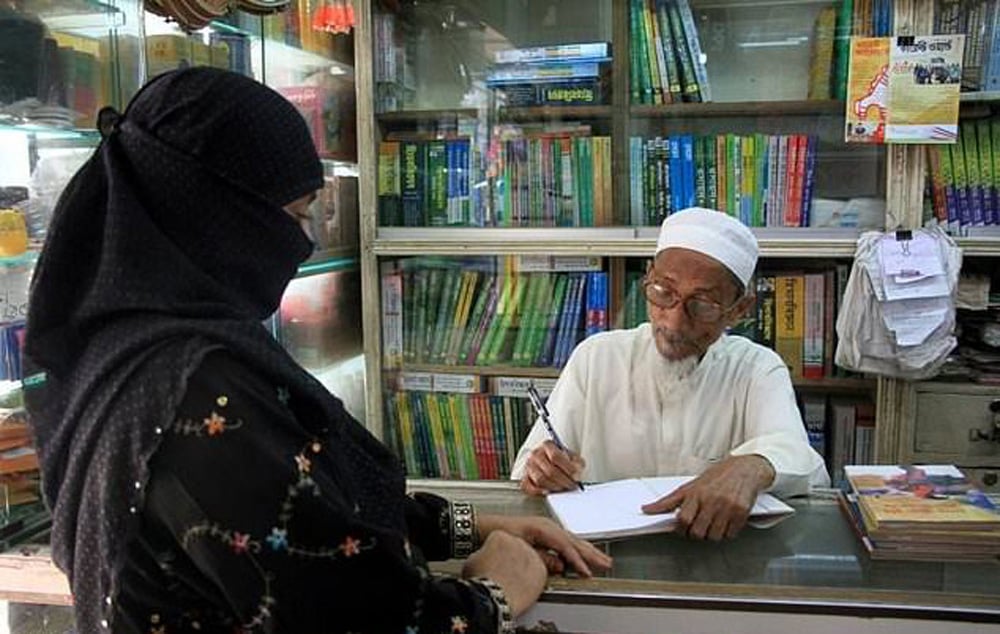
- Turning a new page -
The entire incident involving Rubel has been airbrushed from the book by the authors, who said they did not want to "embarrass" Happy, who is now married.
"She has turned a new page since then. She no longer wants to dwell on the past," Al Faruque said.
But even without these details the moral lessons implied -- that Happy was seeking some sort of redemption in the scriptures -- have resonated with Bangladeshi readers.
The moderate Islam practised in Bangladesh for generations has been slowly replaced by a more orthodox version of the faith in recent years.
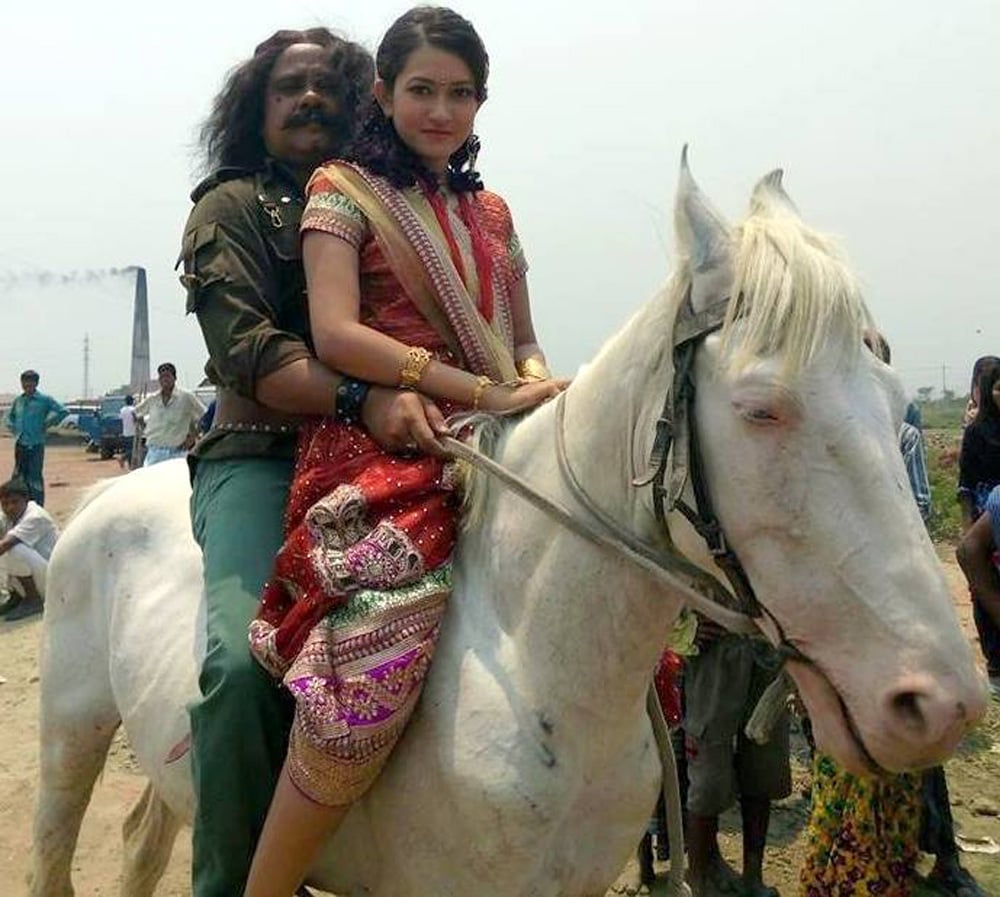
The burka most associated with the rigid Islam of Afghanistan and the Gulf is becoming more commonplace, new mosques and madrassas are flourishing and hardliners have won symbolic victories in their push to overhaul Bangladesh´s secular constitution.
"From Happy to Amatullah" is just the latest addition to a thriving genre of Islamist literature in Bangladesh, where authors have captivated readers weaving piety into plots lamenting modern women and Western lifestyles.
Kasem bin Abubakar, who pens chaste love stories tinged with Islamic values, is one of the country´s best-selling authors.
Suggestions Happy´s transformation could be a publicity stunt destined to end as quickly as it began have been denied by her promoters.
"We asked her whether she would go back to the glamour world. She said she won´t jump into that hellfire again," said Al Faruque.
